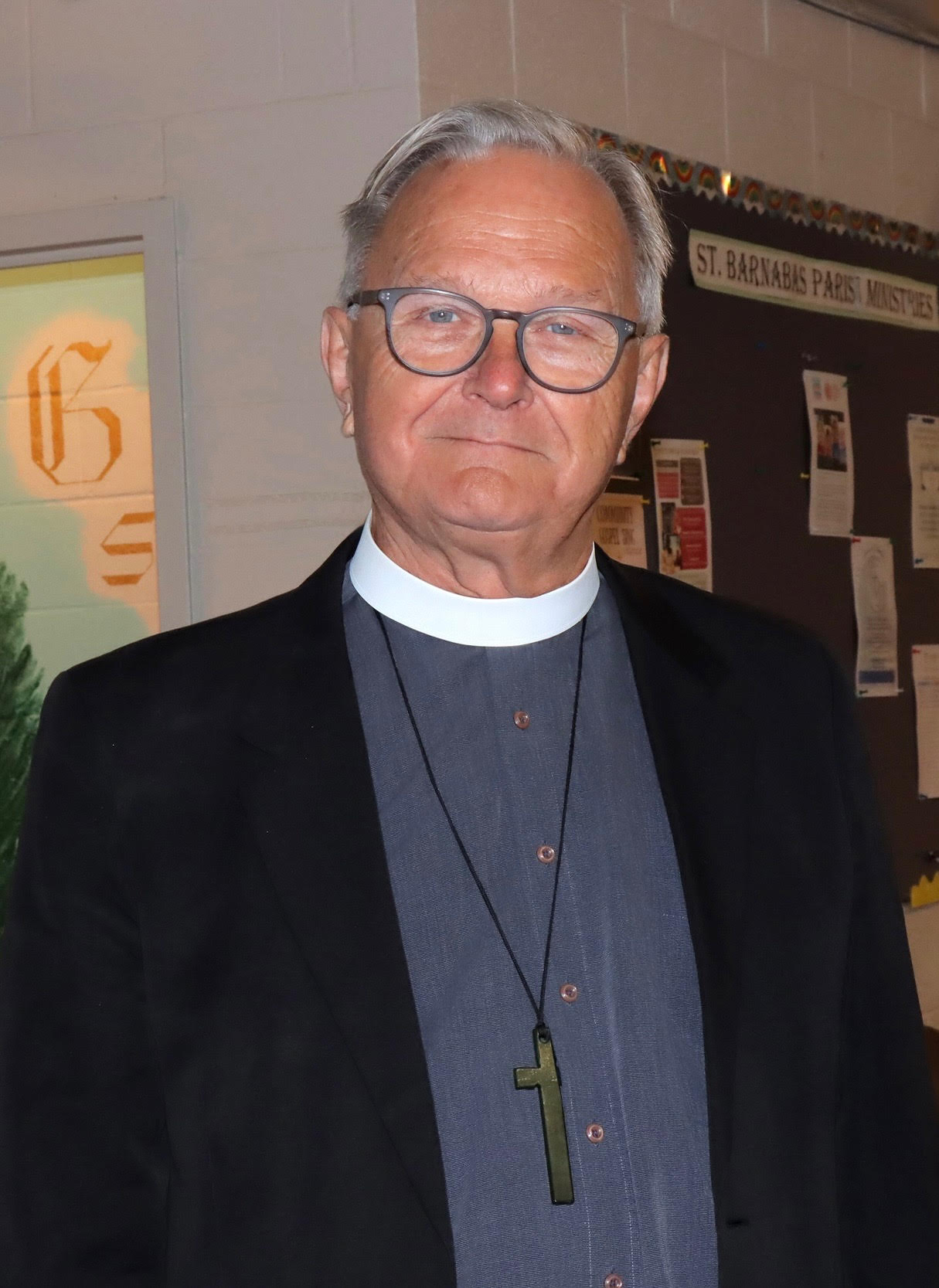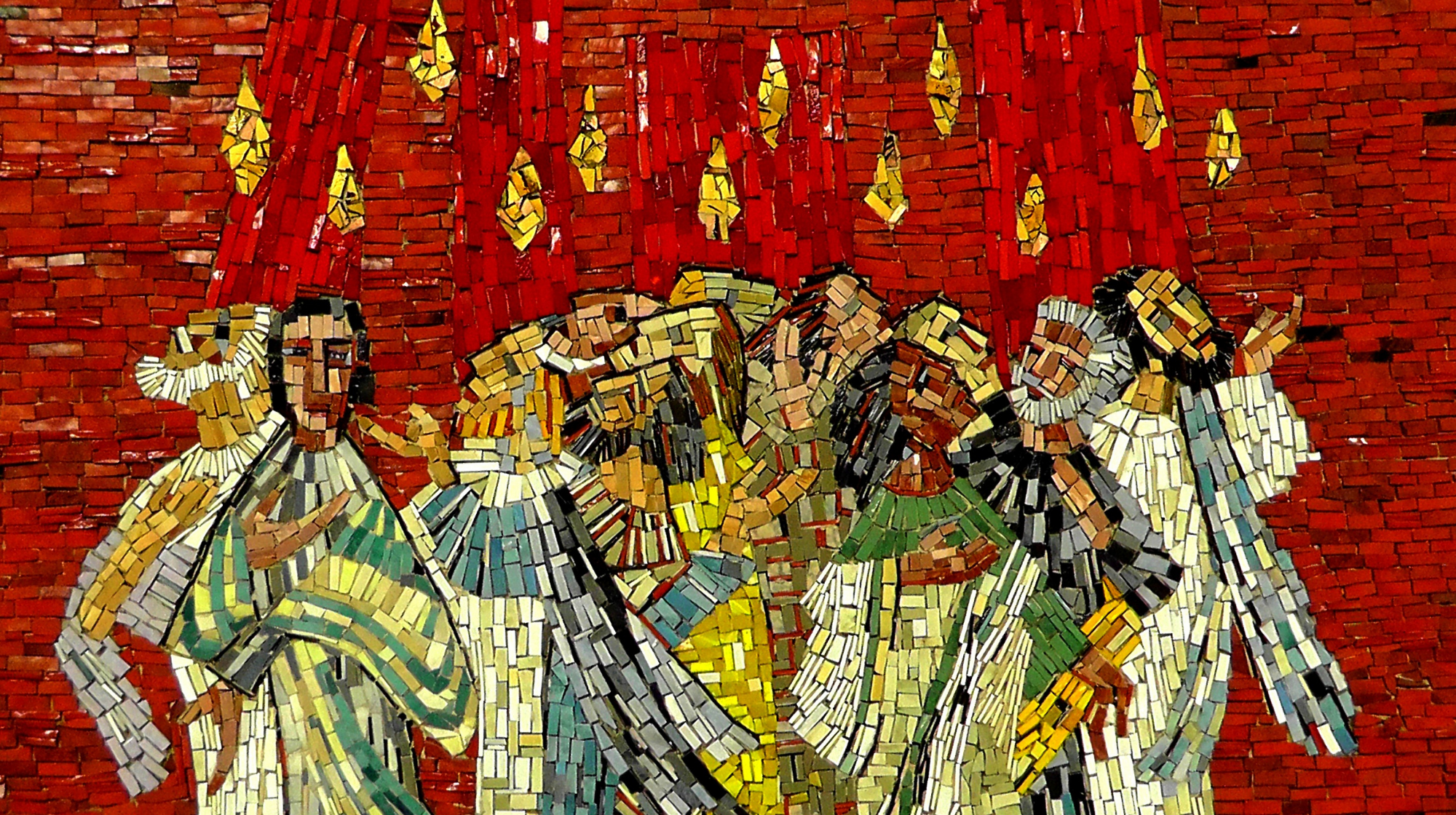By Gene Packwood
A self-described “pretty quiet, cautious, with-a-seatbelt charismatic,” Gene Packwood shares a dream for the Church.
Jesus told his disciples, “The Father himself loves you.” To which they gratefully replied, “Now you’re speaking plainly and not using any figurative language”[1](John 16: 27 & 29).
The Father himself still loves us and Jesus still speaks plainly, even when he uses figurative language, through the Holy Scriptures, Sacraments and through the Gifts of the Holy Spirit. The irony is that it is now we who are often tempted to treat the plain words of Jesus as figurative, or even mythological, because we’d rather not deal with the plain meaning. I believe that what Jesus, the Gospel writers and St Paul wrote about the supernatural activity of the Holy Spirit is plain, still true, and I’d like to see more of it—so have been praying accordingly for the last forty, or so, years. I’d like more Anglicans to see the 1 Corinthians, chapter 12, gifts of the Spirit in action and things like “those unable to speak talking, the crippled restored, the lame walking, and the blind seeing” (Matthew 15:31), so they might be amazed and give glory to God.
John Torley, a committed and engaging charismatic, was my priest and the one who pastored me through the discernment process leading to seminary at The College of Emmanuel and St Chad in 1988 and ordination in the Diocese of Calgary in 1991. I served two parishes as a Parish Priest: St Francis of Assisi, Airdrie, Alberta for 8 years and St Barnabas, Medicine Hat, also in Alberta, for 15 years. I’ve served on the board of Anglican Renewal Ministries (ARM) Canada since 2011. ARM Canada is the result of a move of God back in the late 1970s and 80s in the days of people like Dennis Bennet, David Watson, Terry Fulham, John Wimber, David and Mary Pytches and others. At this time, many Anglicans from all over Canada experienced the presence, power and gifts of the Holy Spirit in remarkable and compelling ways.
I became a charismatic Anglican on the tail end of that, thanks to the LORD’s grace and mercy, my priest, John Torley, and other Calgary friends. It was at a Wednesday evening Prayer and Praise service at Holy Trinity Anglican Church in Calgary in April 1986 when, after my praying with varying degrees of intensity for two years for the gift of tongues, a woman prayed for inhibitions to be removed—not for me, in particular, but generally—and the gift was suddenly released in me. I’d tried making noises before but all at once something began flowing from my lips sounding like some sort of language. It has humbled and blessed me ever since. I don’t know what I’m saying but I believe I’m speaking “mysteries in the Spirit” (1Cor 14.2).
ARM Canada continues to pray, teach, allay fears, encourage and help Anglicans to experience the times of wonder and refreshing that come with the presence of God, Father, Son and Holy Spirit, in full measure. Our board is made up of a faithful, gifted, Spirit-filled group of women and men—lay people and clergy—from across the land.
Since Pentecost the LORD has continued to pour out his Spirit on people to empower them with spiritual gifts for the common good (1 Cor. 12.7) and to build up the church (1 Cor. 14.4, 12). St Paul encourages us to desire these gifts earnestly (1 Cor. 12.31, 14.1). John the Baptiser declared that Jesus will baptise with the Holy Spirit and fire (Luke 3.16). Repeatedly since Pentecost God has poured the Holy Spirit out on believers in revivals (within the church) and awakenings (among people outside the church). These include, more recently for example in the western world, a “general awakening” beginning in 1727, another in 1792, a “resurgence” in 1830, another “general awakening” in 1858, another “resurgence” in 1882 and yet another “general awakening” in 1905—“all of them as worldwide in scope as evangelical Christianity at the time,” writes J Edwin Orr in The Re-study of Revival and Revivalism (School of World Mission, Pasadena). (For more excellent resources from Orr go to https://jedwinorr.com.)
The challenge is that we Christians often tend to “cool” over time. The historical pattern seems to be that these outpourings of the Holy Spirit often come after times of serious decline in the Church and faith. For example, before the Awakening of 1792 onward,
…the languishing Lutherans considered union with the equally exhausted Episcopalians; Samuel Provoost, the Episcopal Bishop of New York, being unemployed, ceased functioning. (Ibid, p9)
The unfortunate Bishop Provoost hadn’t had a confirmation in 17 years!
As is most often the case, these Awakenings and Revivals arose from concerted prayer. For example, before the 1792 Awakening, there were seven years of prayer on the first Monday evening of each month in the Church of England for “revival of religion and extension of Christ’s kingdom overseas.” (Ibid, p10) The 1949 Hebridean Islands revival began with the earnest prayers of two women in their 80s. Canada was not excluded. For example, unplanned meetings in Hamilton, Ontario in October of 1857 resulted in the mayor, doctors, lawyers, housemaids, and farmers coming to faith while drunkards and prostitutes repented. (Ibid, p25)
This statistic captured my imagination and became the frequent focus of my prayers ever since I saw it:
In Chicago, population 100,000, two thousand men met at noon for prayer, while churches were conducting two or three or four meetings a day. Trinity Episcopal Church had 121 members in 1857, and built a church for 1400 in 1860. A shoe-salesman offered to teach a Sunday School class in Plymouth Congregational Church, but was put upon the waiting list until he rounded up a group of boys, took them to a beach on Lake Michigan, taught them Bible stories: thus began the ministry of D. L. Moody. (Ibid, p27)
Trinity Episcopal Church! At the time I read it, I had just been at a CoGS meeting where we had considered yet another fund-raising effort for our national church. I was disturbed and disappointed. Surely, rather than another attempt to manage and strategize our way into viability and growth, what we needed was something that came from the Living God and Father of our Lord Jesus Christ in the power of the Holy Spirit, like those revivals and awakenings above! Get strangely warmed hearts connected to Jesus and the funds would follow, it seemed to me. I have prayed for it ever since.
Being Anglican doesn’t disqualify us. Not long after those Chicago Trinity Episcopal events, there were impressive stirrings in our mother church, The Church of England. While the theatres of London were filled with the common folk hearing the Gospel preached, the Deans of St Paul’s and Westminster Abbey were energetically competing for the greatest number of Sunday evening converts among the upper classes! Imagine!
And then came the Awakening of 1904 onward—called the most extensive evangelical awakening of all time. Five million people came to faith around the world. Church of England Anglicans were a part of it. Edwin Orr, in one of his talks, reports that during the Welsh Revival of 1904–5, for example, thirty bishops of the Church of England met together to discuss what should be the attitude of the Church of England to the revival. The first speaker, a bishop, said, “Fathers and brethren, I’ve just come from Shropshire, where in a single parish church, I confirmed 950 new converts. The bishops voted for the revival.”
Also around that time, Handley Moule, Bishop of Durham, composed this prayer that was pasted in every prayer book of the Church of England:
Revive, O Lord, we humbly beseech thee, the work of Thy saving grace in the Church universal, in our Church of England, in our diocese, in this parish wherein we dwell and in our own hearts; to the conviction and conversion of forgetful souls, to the quickening of thy true disciples in life and witness, and to the glory of Thy Holy Name, through our Lord and Saviour, Jesus Christ. Amen.
Of course, opposition was not slow in developing. For example, Joseph Trapp, an Oxonian DD, began a series of addresses on “the Nature, Folly, Sin and Danger of being Righteous Overmuch.” (Ibid, p3)
For the last twenty years or so, reading and hearing about these stories has encouraged me to follow a pathway set by Jesus’ admonition to “pray always and not give up” (Lk 18:1) and by asking the LORD to continue fulfilling his promise to pour out the Holy Spirit on all humanity (Joel 2:28).
In his book, The Fundamentals of the Faith (Ignatius Press, 1988), Peter Kreeft—erstwhile Baptist and now Roman Catholic, Professor of Philosophy at Boston College and The King’s College—wrote this instructive parable on our need for the Holy Spirit:
When Paul visits the church in Ephesus (Acts 19) he notices something missing—I think he would notice exactly the same thing in most of our churches and preach the same sermon—and he asks them, “Did you receive the Holy Spirit when you believed?” (Acts 19.2) Why would he ask that unless he saw a power shortage? Why did twelve fishermen convert the world, and why are half a billion Christians unable to repeat the feat? The Spirit makes the difference.
The difference is perhaps best explained by a parable. A family of poor European immigrants saved for years to buy tickets to America. On the ship, they had nothing but the clothes on their backs and a few loaves of bread and wedges of cheese that they had bought before sailing. It was all they could afford. After three days of nothing but cheese sandwiches, the little boy approached his father with an ultimatum: “Dad, I hate cheese sandwiches. If I don’t eat anything else before we reach America, I’m going to die.” His father took pity on him and gave him his last nickel to go to the ship’s galley and buy an ice cream cone. (This was 1910!) He didn’t return for hours, and his father was getting worried.
Finally, he showed up with a fat stomach and a fat smile.
“Where were you?”
“The ship’s galley, getting something to eat.”
“What did you eat?”
“Three ice cream cones and then a steak dinner ’cos I was still hungry.”
“You bought all that with a nickel?”
“Oh, no. Here’s your nickel back. The food is free. It comes with the ticket.”
The steak of the Holy Spirit comes with the ticket of our faith. But most of us are making do on cheese sandwiches. It will get us there, as cheese sandwiches would get the immigrants to America. But why not eat the steak? It’s free. (p142)
Why not eat the steak, indeed!? In the days of the Welsh Revival, people wrote of hearts strangely warmed, joyous Sabbaths, more people in churches, new life and spirit in worship and in work, and the risk of being thought of as Righteous Overmuch! Very much worth praying for, methinks! I believe such concerted prayer ought to be the Pathway for the Anglican Church of Canada in our time. Perhaps Handley Moule’s Collect should be pasted into every prayer book and prayed in the Anglican Church of Canada, too. May all our national, provincial, diocesan, deanery and parish Pathways lead to strangely warmed hearts in all Anglicans—beating in time with the heart of Jesus, and bringing the new life and joy that can only come not just from competently prepared cheese sandwiches, tasty as they can be, but from the full-on nutritious, delicious, Holy Spirit-warmed steak dinner of the refreshing presence of our LORD and Saviour, Jesus.
O God, make clean our hearts within us;
And take not thy Holy Spirit from us.
——————————————————-
[1] Translations are taken from the Christian Standard Bible, Holman Bible Publishers © 2017.

The Rev. Canon Gene Packwood is a retired parish priest living in Regina, SK. He was until recently Chair of Anglican Renewal Ministries Canada (www.armcanada.org).

